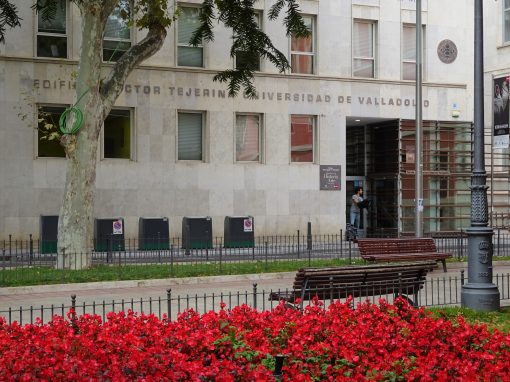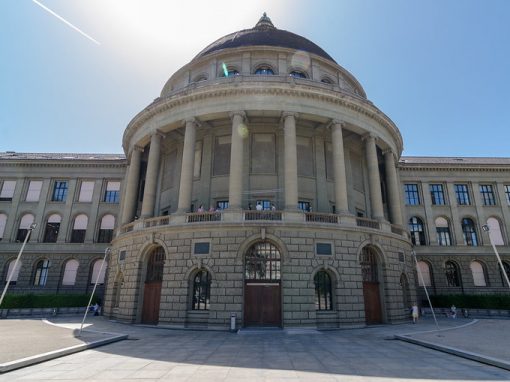

Grounded Organisations
More and more organisations choose to stay grounded.
Find here inspiring examples of universities, NGOs and businesses as well as concrete measures they implemented to reduce their air travel.
organisations joined our community
of them
Click here to
Universities
In recent years, universities in Europe, the USA and Canada have increasingly become places of progressive and climate-friendly travel policy – there is a real growing movement in this sector. This accumulated knowledge can also be very helpful for other organisations in formulating and implementing travel policies.
Best Practices
These universities have enacted examplatory policies.





Find here the list of universities that joined our community of grounded organisations (by filling in our survey) and indicated measures they (will) implement to stay grounded.
Here is a list of universities that already implemented policies, as well as platforms for universities and grassroots initiatives:
Universities with grounded travel policies and guidelines
For an overview of the variety of measures taken by universities all over the world, see the Map of Academic Air Travel Reduction and Offsetting Projects, created and being maintained as part of a PhD project by Agnes Kreil at ETH Zürich.
See below links to travel policies and guidelines of different universities all over the world that aim to reduce air travel.
Belgium
Denmark
Germany
- Eberswalde University for Sustainable Development
- Hochschule für Technik und Wirtschaft (HTW) Berlin
- University Potsdam
Netherlands
Norway
- University Bergen (overview) and concrete policy (in Norwegian)
Switzerland
- École Polytechnique Fédérale de Lausanne
- ETH Zürich (see also Best Practice example)
- University Neuchâtel (see more info here in the survey section)
- University of Genève
Sweden
United Kingdom
United States and Canada
Platforms for universities
- The project FlyingLess, together with four partners, develops approaches to reduce flight emissions in academia and makes them available to all
- Scientists for Future: Unter 1000 mach ich’s nicht! (GE, AT, CH): Scientists for Future initiative for scientists in Germany, Austria and Switzerland to voluntarily refrain from taking short-haul flights up to 1,000 km (equivalent to about 12 hours train journey) for the purposes of business-related travel.
- #flyingless: great blog on flying less in academia by Park Wilde (Tufts University, Massachusetts/US) with huge FAQ-section and petition calling on universities and professional associations to greatly reduce flying
- No Fly Climate Sci (US): website by Peter Kalmus for scientists and institutions of earth sciences to pledge to stop or reduce flying, including a resource collection.
Grassroots initiatives and proposals for travel policies at universities
In universities all over the world, grassroots initatives from students or staff are forming, encouraging their administration to establish a grounded travel policy.
- ExPlane aims to build a network of students and staff demanding universities and schools to lead by example in travelling consciously by creative actions, petitions, student trips, film nights, thesis proposals etc. ExPlane is an official campaign partner of the “Let’s Stay Grounded” campaign.
- Environment and Climate Emergency Working Group White Paper by students and staff at the University of Exeter (UK), including travel policy.
- Proposal of policies from the Institute of Environmental Science and Technology of the Universitat Autònoma de Barcelona (ICTA-UAB) (ES)
- Carbon Neutral University Network – Sheffield (CNU), which organised this excellent symposium on reducing academic flying
- Recommendations on Copenhagen Business School Flight Sustainability Policy (DK)
- Petition to Albert-Ludwigs-Universität Freiburg (GE)
- Association of Computing Machinery SIGPLAN, Engaging with Climate Change: Possible Steps for SIGPLAN (US)
- Recommendations of the Environmental Studies Association of Canada (CA)
NGOs and Businesses
There are not that many NGOs and businesses yet that have travel policies with the explicit goal of reducing air travel. Find here some initiatives, platforms and examples in a hopefully constantly growing list. If you have any hints regarding best practice examples, feel free to contact us! Of course, the resources regarding universities (see above) are also very helpful for corporations and NGOs.
Find here the list of NGOs and businesses that filled in our survey and indicated measures they (will) implement to stay grounded.
NGOs and businesses with grounded travel policies
- The World Resources Institute committed to reducing emissions from their business travel by 46% of 2019 levels by 2030. See their sustainabilty data here and great guide on business travel emissions analysis here.
- Haberkorn reduced the number of flight kilometers by a third between 2008 and 2017 by urging employees to take at least one way by train (website in German)
- BKS Bank is promoting video conferencing and could avoid 269.000 km of travel in 2018
- PwC UK aims to reduce travel emissions by reducing the number of journeys and promoting less carbon-intensive ways of working and making better use of technology-based alternatives
- Politiken: the daily Danish newspaper announced that their staff will only fly domestically when absolutely necessary and that it will reorient their travel section in a more climate-friendly direction (link to announcement in Danish).
- Helsingborg Concert Hall in Sweden will not fly in international artists in the 2020/21 season
- The band Massive Attack announced they will tour Europe by train to reduce their carbon emissions.
- German TV station Tele 5 abolishes flights within Germany for its staff (link in German).
Platforms for NGOs and corporations
- Anders Reizen: coalition of more than 50 large organisations with 450,000 employees with the ambition to halve the CO2 emissions of business travel by 2030 (compared to 2016), facilitated by our campaign partner Natuur en Milieu.
- Einfach. Jetzt. Machen: German initiative for corporations to pledge to refrain from domestic flights and from flights for journeys of up to 1,000 km, to minimise energy consumption in all operating facilities and to obtain the remaining electricity requirement from 100% green electricity and to refrain completely from meat from conventional, industrial production and to use only organically, seasonally and regionally or fairly produced food for catering and hospitality as far as possible.
- Climate Perks: works with climate-conscious employers to offer paid ‘journey days’ to staff who travel on holiday by train, coach or boat instead of flying
- Loving the Atmosphere: Individual pledge to no longer use domestic business flights and/or flights to neighbouring countries for business trips or to no longer use an airplane for business trips in future at all.
Travel policies of funding and public institutions
Many organisations depend on funding from private or public institutions or have to abide by governmental regulations regarding business travel. These travel guidelines and the structure of the funded projects highly influence the ability of organisations to reduce their air travel. Also, more and more public institutions themselves are changing their travel policies.
Find below an expanding collection of some promising initiatives in this field.
Public institutions
- Change of the German “Bundesreisekostengesetz” regulating business travel of state employees: From January 2020, the use of the railway is always possible for journeys and is reimbursed – even if this results in higher costs. Flight bookings don’t have to be preferred anymore for economic reasons. See the anticipatory regulation letter in German here.
- Officials from the Federal Administration Switzerland are, since 2020, required to travel by train rather than plane if the journey time does not exceed 6 hours, prefer economy class on journey below 9 hours (direct flights) or 11 hours (indirect flights), use video conferencing more often and have smaller delegations (see more info on “Aktionsplan Flugreisen” in German here)
- Barcelona City Council plans to avoid flights of less than 1,000 km if there is an alternative by train in the framework of their Climate Emergency Declaration.
- Open Letter initiated by Young UN Agents for Change network (2019) on Climate Action of United Nations institutions. One chapter is concerning air travel policies.
Funding institutions
- Open Letter of scientists: Decarbonize research through funding rules. Signatures still possible.
- European Innovative Training Network (ITN) COUPLED: A group of PhD students started a discussion on the COUPLED travel policy. See their blog article here.
- Funding criteria by the Wellcome Foundation aiming to reduce the environmental impact of the travel it funds






